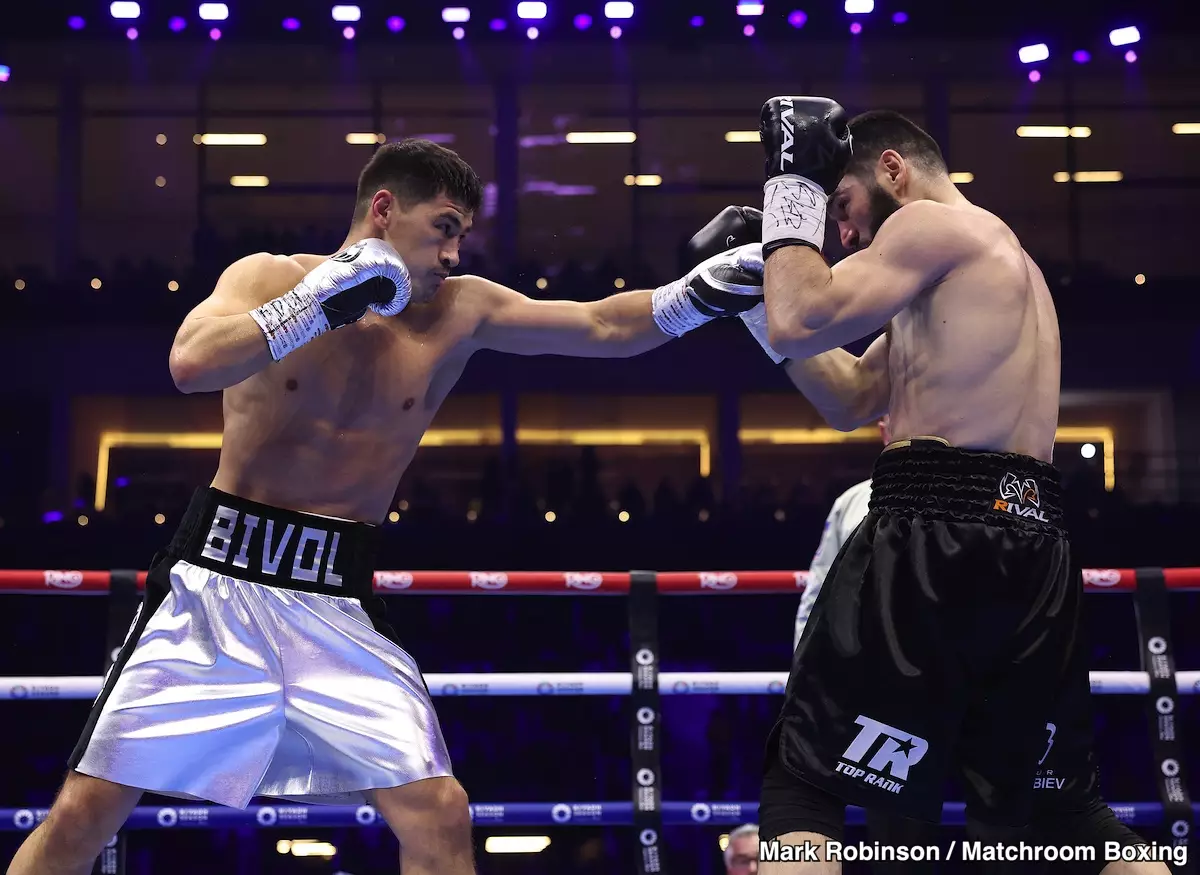In a much-anticipated rematch that unfolded at the Kingdom Arena in Riyadh, Saudi Arabia, Dmitry Bivol (24-1, 12 KOs) faced off against the formidable Artur Beterbiev (21-1, 20 KOs) for the undisputed light heavyweight title. Following their first encounter, where Bivol claimed a significant victory, this bout was set to determine if Beterbiev could reclaim lost glory. However, fans were left underwhelmed as Bivol executed a predominantly defensive strategy to secure a majority decision victory.
Bivol’s approach throughout the fight drew a stark contrast to expectations. Instead of engaging in an all-out war, he opted for a strategy centered on eluding Beterbiev’s power punching. By moving side to side, Bivol successfully kept distance, making it challenging for Beterbiev to land meaningful blows. While this method proved effective, it also led to a lack of action that left spectators in the arena noticeably silent. Instead of the thrilling exchanges fans had anticipated, the bout became a tactical maneuvering match, prioritizing Bivol’s defense over offensive fireworks.
Judging the Fight: A Controversial Outcome
The official scorecards reflecting the narrow decision – 114-114, 116-112, and 115-113 – underscore the contentious nature of the bout. Evaluating how the rounds were scored, it appears that Beterbiev arguably edged out more rounds than the judges indicated, suggesting that a more balanced scorecard could have leaned towards a draw. However, the stakes of the fight had broader implications beyond mere victory. The involvement of figures like Turki Alalshikh, expressing a desire for a trilogy, adds layers to the outcome, hinting that promotional motives might have influenced the judges’ perceptions.
Bivol’s Physique and Fight Strategy
One notable observation was Bivol’s physical appearance. He appeared thinner and less powerful than in their previous bout, likely a testament to the rigorous conditioning regimen he adopted leading up to this fight. His intent was clear: avoid confrontation while maintaining the stamina necessary to sustain a defensive performance over 12 full rounds. However, this raise the question of whether sacrificing power for speed truly served him in the long run. While his cardio was commendable, the lack of punch power restricted his effectiveness in establishing a commanding presence within the ring.
The conclusion of this bout may set the stage for a thrilling trilogy, as suggested by the interest from various stakeholders. Beterbiev’s determination to reclaim his status after falling short might lead him to recalibrate his strategy, potentially embracing a more aggressive approach if a third fight unfolds. Conversely, Bivol may need to reassess whether his defensive style, while successful this time, can capture audience interest and maintain the momentum of his career. As fans and analysts alike call for a third showdown, both fighters will need to restore excitement to the rivalry to fulfill the promise that their bouts have hinted at since the beginning.
While Bivol secured a notable victory, the implications of this rematch extend beyond the scorecards. The evolution of their rivalry promises future intrigue, where boxing enthusiasts might finally witness the action-packed showdown they desire.

